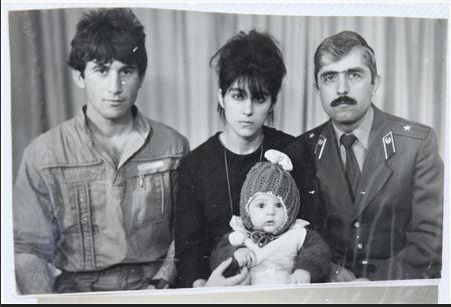Tamerlan Tsarnaev: Denied A Grave, Body Languishes In Funeral Home

The body of Tamerlan Tsarnaev, the suspected Boston Marathon bomber, has been refused burial by local cemeteries and remains at a funeral home in Worcester, Mass. Over the weekend, the funeral home became the site of protests. Today, residents continue to talk about taking up a collection in hopes of sending Tsarnaev's body to Russia.
Such behavior may be an attempt to express antisocial feelings equal in weight to those of Tsarnaev himself, who was responsible for the death of three people and the maiming of more than 250 people on April 15 when two bombs exploded near the finish line of the Boston Marathon. Three days later, Tsarnaev and his 19-year-old brother, Dzhokhar, were responsible for the death of a Massachusetts Institute of Technology police officer on the Cambridge campus.
"The capacity to conceptualize death and the possibility of an afterlife is widely considered an emergent property of mind that sets humans apart from other animals," wrote George Bonanno, professor of clinical psychology at Columbia University, in The Other Side of Sadness. "Archaeological evidence of ritualized burial of the dead, found at prehistoric sites, for example, is often cited as a marker of the emergence of human self-consciousness and the origins of society."
To deny a ritualized burial, then, effectively withholds any sign of social acceptance.
Yet, society at large did not find it necessary to exclude the shooters at Sandy Hook and Virginia Tech from the rituals of mourning; each was granted burial, although both services were kept private and secret. Oklahoma City bomber Timothy McVeigh's ashes were privately scattered by his attorney. Still, to deny him the honor of a military burial, congress went so far as to pass a law banning military rites to veterans guilty of capital crimes. And the American government made a clear decision to bury the body of terrorist leader Osama bin Laden at sea in order to avoid his burial place providing any sort of a shrine to jihadists.
Yet, mourning with its attendant rituals is a need not only for individuals but also for large groups, according to political psychologist Vamik Volkan. He has worked for 30 years with traumatized societies worldwide.
By its nature, death is not final, he suggested. "You have an image of this person in your mind that doesn't die; it stays in your mind, like a mental double of the person who is absent," he said in Psychology Today.
A person's internal relationship with the mental double over time becomes less present, he explained. Eventually, a kind of psychological burial takes place, but it's never as complete as a physical burial. "We cannot fully bury a mental double," Vokan stated. "It is always in your mind until you die. So in a sense the mourning process never ends."
Then again, in large groups, the process of psychological burial is more complicated because the mental double is shared and the reminders of death are continuous.
"We build monuments and whatever feelings are left are locked into the marble and metal. We put unfinished pieces of our mourning there."



























